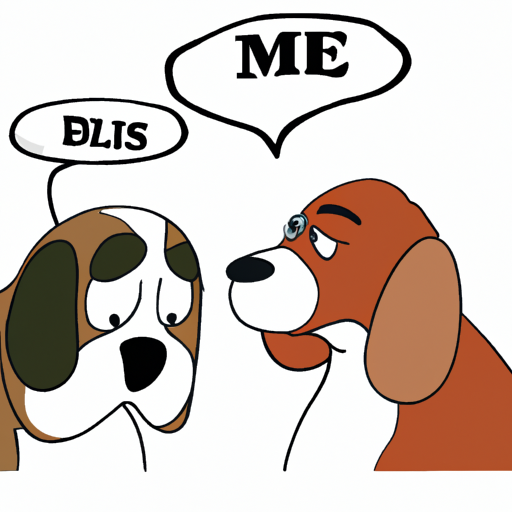Imagine this: You’re in your living room, enjoying a peaceful evening with your furry companions. Out of nowhere, a growl echoes through the room. Before you know it, your dogs are embroiled in a snarling, teeth-baring tussle. This scenario is all too familiar for many dog owners, but why does it happen? Why do dogs fight in the same household?
The answer is not straightforward, as it involves a complex interplay of several factors. Understanding these factors can help dog owners mitigate these disputes and contribute to a more harmonious household.
- Understanding Dog Behavior
- Common Reasons Why Dogs Fight
- Preventing Fights Between Dogs
- When to Seek Professional Help
- FAQs
Key Takeaways
- Dogs are social animals, and their behavior is deeply rooted in their pack mentality.
- Dominance struggles, resource guarding, and miscommunication are common reasons for dog fights.
- Proper training, early socialization, and maintaining a calm environment can help prevent dog fights.
- If fighting becomes constant and uncontrollable, seek help from a professional dog trainer or behaviorist.
Understanding Dog Behavior
Dogs, like their wild counterparts, are social animals. Their behavior is deeply rooted in their pack mentality. In a domestic setting, the human owner is often considered the “alpha” or leader of the pack. However, when there are multiple dogs in a household, they may attempt to establish a hierarchy among themselves, which can result in conflicts.
According to the American Kennel Club, understanding your dog’s body language can help you recognize signs of tension before they escalate into fights.
Common Reasons Why Dogs Fight
Dominance Struggles
In a pack, each dog has its place in the hierarchy. When two dogs vie for the same position, it may result in a dominance struggle. This is more common in households with dogs of the same sex, particularly males.
Resource Guarding
Dogs have a natural instinct to guard their resources – be it food, toys, or even their favorite sleeping spot. This behavior, known as resource guarding, can trigger fights between dogs.
Miscommunication
Sometimes, what humans perceive as a “fight” may just be a miscommunication between dogs. Dogs communicate through body language, and a simple misunderstanding can escalate into a physical altercation.
Health Issues
Health issues can also trigger fights among dogs. A dog suffering from pain or illness may become irritable, leading to aggression. Regular health check-ups can help identify these issues early.
For more insights on dog behavior and the reasons behind their actions, visit One Top Dog.
Preventing Fights Between Dogs
-
Training: Proper training is crucial in preventing dog fights. Train your dogs to follow basic commands like “sit,” “stay,” and “leave it.”
-
Socialization: Early socialization can help dogs learn how to interact appropriately with other dogs.
-
Maintain a Calm Environment: A stress-free environment can help reduce the likelihood of fights. Avoid situations that may stress your dogs, such as loud noises or sudden changes in routine.
-
Provide Separate Resources: To prevent resource guarding, provide separate food bowls, toys, and sleeping areas for each dog.
For helpful tips on training and socializing your dogs, check out these articles on dog training and dog socialization from One Top Dog.
When to Seek Professional Help
If the fights become constant and uncontrollable, it may be time to seek help from a professional dog trainer or a certified animal behaviorist. These professionals can help identify the root cause of the fights and provide strategies to manage and resolve the conflicts.
The Certification Council for Professional Dog Trainers is a good resource to find certified professionals in your area.
FAQs
Q: Why are my dogs suddenly fighting?
A: Sudden fighting can be triggered by a change in the environment, a shift in the dogs’ relationship, or health issues in one or both dogs.
Q: Can dogs living in the same house fight?
A: Yes, even dogs living in the same household can fight due to various reasons such as dominance struggles, resource guarding, miscommunication, or health issues.
Q: Should I intervene when my dogs fight?
A: Yes, but do so safely. Never put your hand or body between fighting dogs. Use a loud noise, water, or a barrier to separate them.
Q: How can I prevent fights between my dogs?
A: Proper training, early socialization, maintaining a calm environment, and providing separate resources for each dog can help prevent fights.
By understanding why dogs fight and how to prevent it, we can contribute to a peaceful and harmonious household. Remember, every dog is unique, and what works for one might not work for another. So, it’s important to be patient, consistent, and ready to seek professional help when needed.



